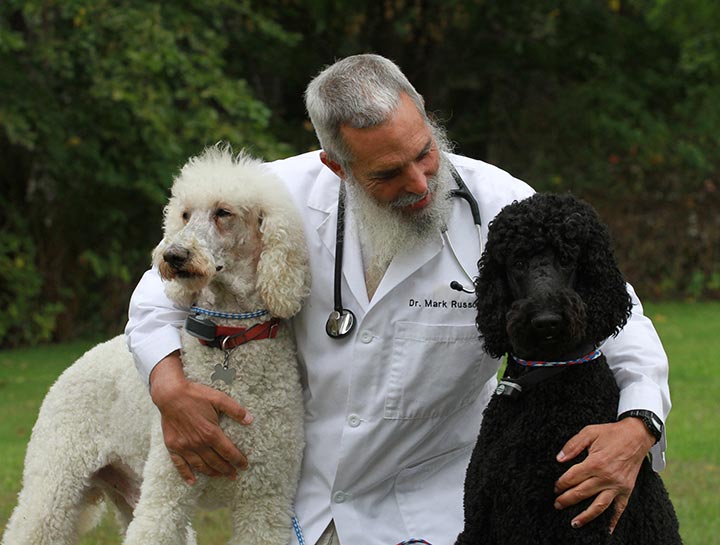Senior Pet Care Guide

June 1, 2020
As our senior pets age, they become more fragile and susceptible to disease, illness, injury, and other uncomfortable conditions. You will notice they may start gaining or losing weight, graying, and losing some of that spunky energy they used to boast.
Some of these changes quite simply rest in the hands of Mother Nature, while others can decidedly help your pet age with grace rather than distress. Our senior pet care program provides you with necessary prevention and early detection services to help optimize senior patient wellbeing and to catch and begin treatment of problematic pet health issues before they become uncontrollable.
- Begin bi-annual veterinary wellness exams between the age of 7 and 10. This may include blood tests and urinalysis.
- Test for thyroid disease at 8 and 10 years of age.
- Continue with immunizations based on lifestyle and environment, as well as monthly heartworm, flea, and tick preventive medications.
- Change to a senior diet that is more appropriate for your pet’s age, energy level, and other lifestyle factors.
- Begin an annual CBC (complete blood count), organ systems test, and bi-annual cancer checks at 11 years old.
- For super seniors (ages 15–25), blood and urine tests should be conducted every 3–12 months at the veterinarian’s discretion.
Comforting Senior Pet Pain Management Options
- Conventional medications like non-steroidal anti-inflammatory drugs, steroids, and other, more powerful medicines if needed
- Holistic Veterinary Care — a more natural, gentle approach to veterinary pain management
- Veterinary Acupuncture
- Pet Laser Therapy
